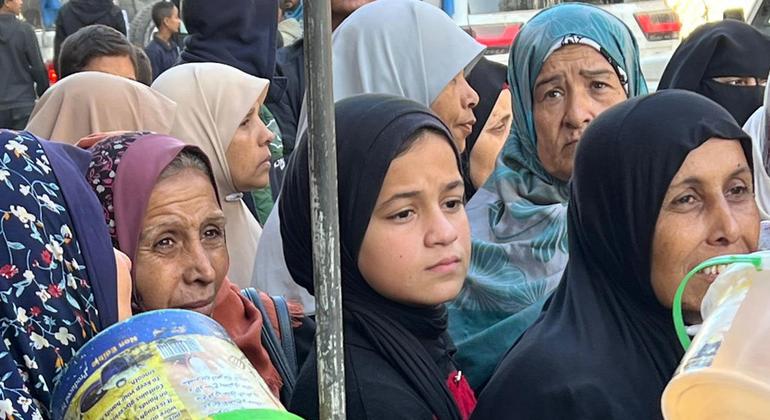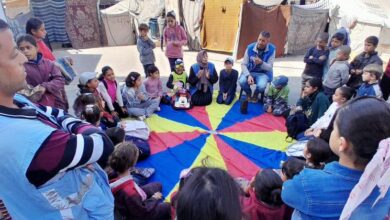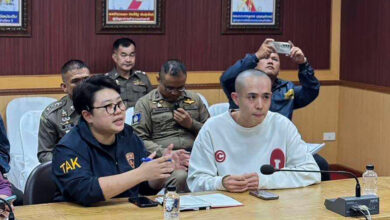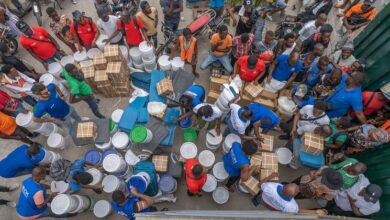Gaza: ‘The devastation is truly astonishing,’ senior WFP official says

Speaking from Gaza, Jonathan Dumont said many people had been displaced multiple times and families were living in tents or in the rubble of collapsed buildings, without electricity or running water.
Text has been edited for length and clarity.
United Nations News: How would you describe the situation on the ground in Gaza more than a year since the war broke out there?
Jonathan Dumont: The devastation was absolutely astonishing. This year, I went to Goma, Port-au-Prince, Khartoum, lots of different places where people had food problems or were displaced. But in Gaza, I have yet to meet anyone who has not been displaced at least two or three times due to military operations.

People walk on destroyed buildings in Gaza.
Almost everyone lost their home. In the South, many people live in tents, winter is coming, rain and wind blow, flooding. Most children don’t have shoes.
Many people feel they have no choice but to return to their homes, which are often, quite literally, in ruins. I met several families who were living in collapsed cement blocks and had no electricity, running water or wastewater. This is the second winter for many of them, they are homeless.
United Nations News: You have reached the northern part of Gaza. Can you tell us more about what you saw there?
Jonathan Dumont: I’ve been to Gaza City, although I haven’t been to the far north. Gaza City is a large city but many buildings have been destroyed. Before you there were villas, beach huts and fishing ports, and now it’s just a ghost town.

Much of Gaza has been destroyed in the ongoing conflict.
WFP can get to that area, so there is some food there, but the food prices of those things don’t come from the international community or from WFPall go through the roof. Someone was selling chili peppers for $195…five dollars for a chili. People can’t afford that.
Bakeries are being treated like banks – with metal slots and metal corridors to get people through because people are desperateand they don’t want people to get hurt or crushed trying to get food.
In Khan Yunis, where we distribute hot meals, people are really desperate – you can see it on their faces, in their eyes.
You can listen to the entire interview here:
United Nations News: The IPC report warns of severe hunger and that some people may be on the brink of starvation. Do you think food insecurity is getting worse in Gaza?
Jonathan Dumont: That’s the problem The society here has completely collapsed, there is no police, no infrastructure or any social structure.. As a result, what we see in southern Gaza is gangs emerging. Our truck coming from the south was looted and our driver was beaten.
We are trying to find solutions to have a stable food source. Obviously, the easiest way to do that is if there’s a ceasefire, which we always hope will happen. In the absence of that, we need to find a way to bring all the food we have outside of Gaza into the country so that everyone can access it. We need to ensure everyone has access to food.
United Nations News: Many bakeries are not operating. How many of them are working at full capacity?
Jonathan Dumont: In the South, none of WFP’s bakeries are large-scale bakeries. In the North there are some, but in the South there are only small bakeries people were improvising when they had some flour.
Here bread is the main food, bread is life.




